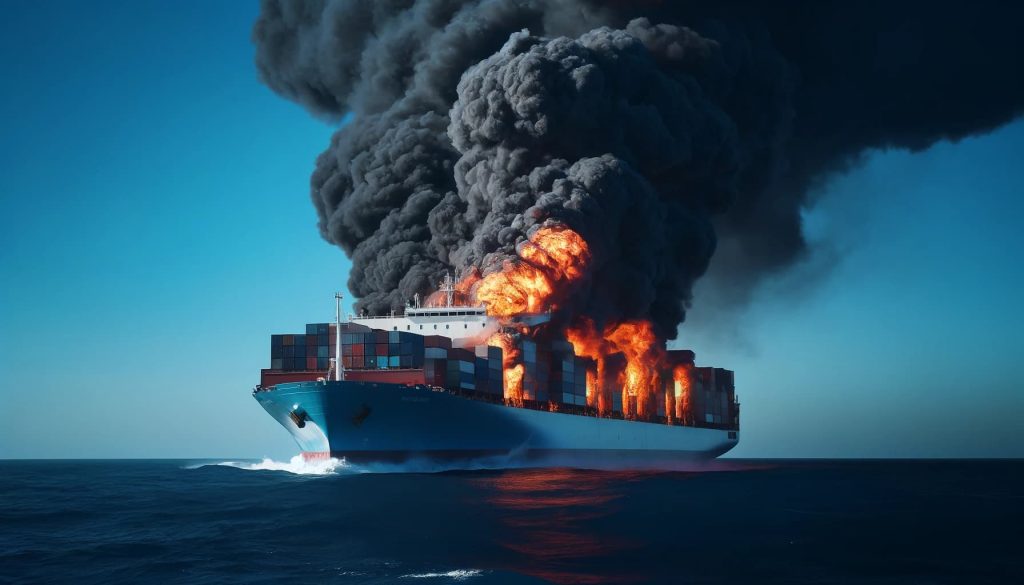Fire, unless caused by the fault or privity of the carrier
In August 1926, a ship left New York bound for Hull, England. Six hours after departure, fire was discovered in coal in a temporary bunker in No. 3 ‘tweendeck. Although the ship immediately changed’ course and ran for the port of New York, she sank with a total loss of her cargo.
In this case the shipper charged the carrier with a breach of contract for not delivering the cargo at its destination. The carrier, of course, pleaded in defense the Fire Statute of 1851 to which the bill of lading referred. Both parties agreed that the fire was the proximate cause of the loss.

The shipper took the position that the ship was unseaworthy when she sailed because the bunker fire was inevitable and that this condition was due to the negligence of the ship’s chief engineer. Therefore, they contended that the carrier could not claim exoneration from liability under the Fire Statute.
The court found that the fire was not caused by the neglect of the ship’s owner but by gross negligence of the ship’s chief engineer. The chief engineer had loaded new coal on top of old coal while the old coal had become so hot in some spots from spontaneous heating that it burned the trimmer’s soles.
The court stated that the limited liability act of 1851 (Fire Statute) provided that the owner of a vessel should not be liable for any Ioss to cargo caused by fire unless the fire was caused by the design or neglect of the owner. The negligence of the ship’s officers in causing a fire was not to be imparted to the owner so as to deprive him of the protection of the Fire Statute. Specifically, the court held that a vessel owner is not liable for damage to cargo caused by the negligence of the chief engineer in placing new bunker coal over old bunkers. It was indicated that the court’s decision was based on precedent when it was pointed out that in all cases where exoneration from liability under the Fire Statute had been denied previously, there had been proof that the fire was due to the negligence of the owner himself or of some representative of the owner other than the ship’s officers and crew. (1932-AMC-1012)
MARINE CARGO OPERATIONS
Copied from a book of Captain Charles L. Sauerbier, USNR
Master Mariner

